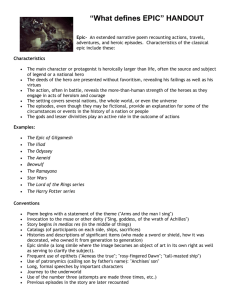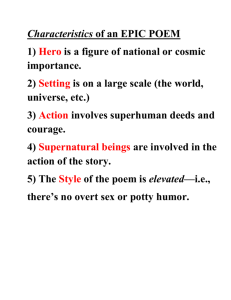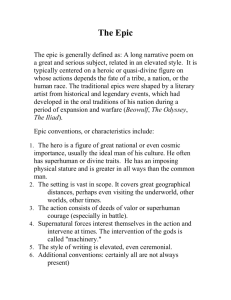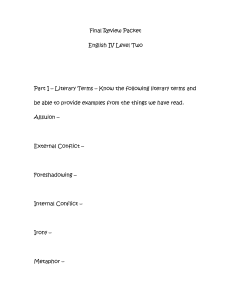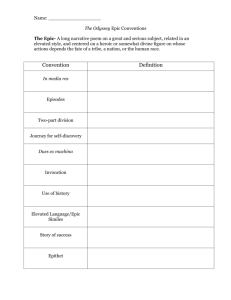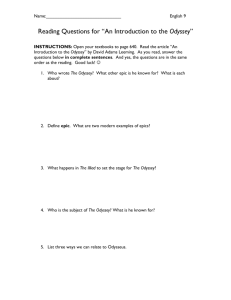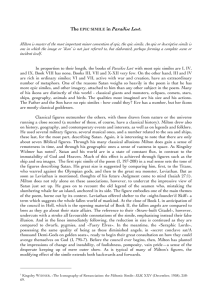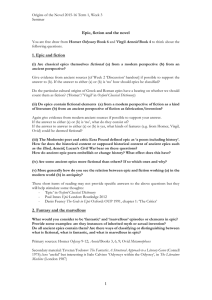epic epic simile
advertisement
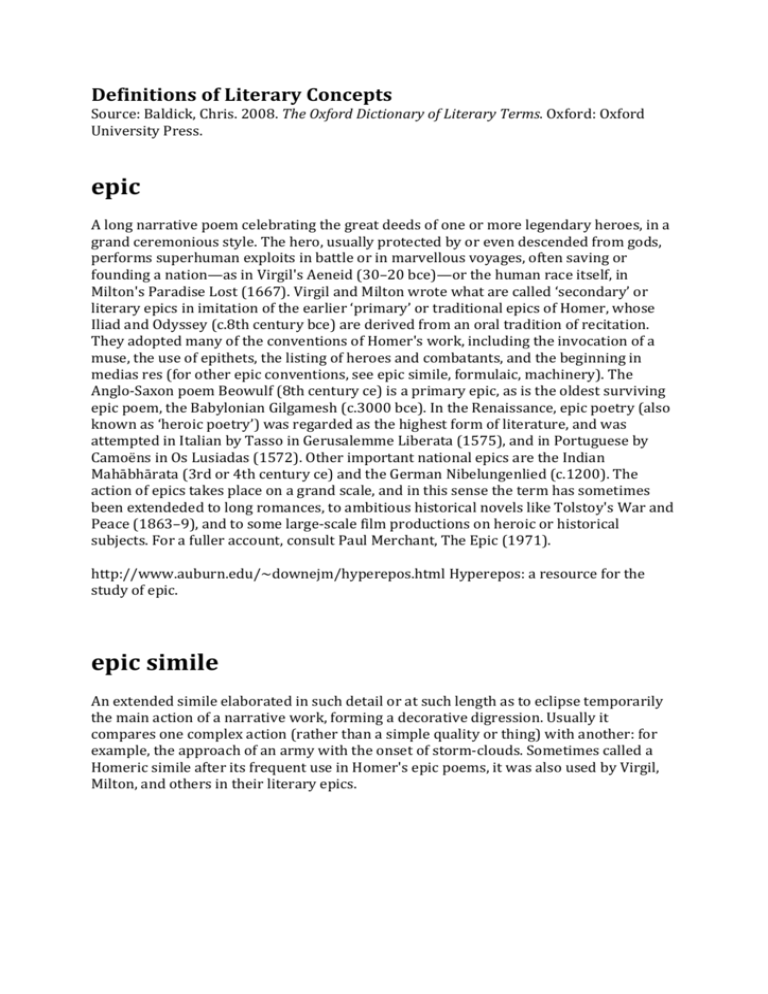
Definitions of Literary Concepts Source: Baldick, Chris. 2008. The Oxford Dictionary of Literary Terms. Oxford: Oxford University Press. epic A long narrative poem celebrating the great deeds of one or more legendary heroes, in a grand ceremonious style. The hero, usually protected by or even descended from gods, performs superhuman exploits in battle or in marvellous voyages, often saving or founding a nation—as in Virgil's Aeneid (30–20 bce)—or the human race itself, in Milton's Paradise Lost (1667). Virgil and Milton wrote what are called ‘secondary’ or literary epics in imitation of the earlier ‘primary’ or traditional epics of Homer, whose Iliad and Odyssey (c.8th century bce) are derived from an oral tradition of recitation. They adopted many of the conventions of Homer's work, including the invocation of a muse, the use of epithets, the listing of heroes and combatants, and the beginning in medias res (for other epic conventions, see epic simile, formulaic, machinery). The Anglo-­‐Saxon poem Beowulf (8th century ce) is a primary epic, as is the oldest surviving epic poem, the Babylonian Gilgamesh (c.3000 bce). In the Renaissance, epic poetry (also known as ‘heroic poetry’) was regarded as the highest form of literature, and was attempted in Italian by Tasso in Gerusalemme Liberata (1575), and in Portuguese by Camoëns in Os Lusiadas (1572). Other important national epics are the Indian Mahābhārata (3rd or 4th century ce) and the German Nibelungenlied (c.1200). The action of epics takes place on a grand scale, and in this sense the term has sometimes been extendeded to long romances, to ambitious historical novels like Tolstoy's War and Peace (1863–9), and to some large-­‐scale film productions on heroic or historical subjects. For a fuller account, consult Paul Merchant, The Epic (1971). http://www.auburn.edu/~downejm/hyperepos.html Hyperepos: a resource for the study of epic. epic simile An extended simile elaborated in such detail or at such length as to eclipse temporarily the main action of a narrative work, forming a decorative digression. Usually it compares one complex action (rather than a simple quality or thing) with another: for example, the approach of an army with the onset of storm-­‐clouds. Sometimes called a Homeric simile after its frequent use in Homer's epic poems, it was also used by Virgil, Milton, and others in their literary epics.
